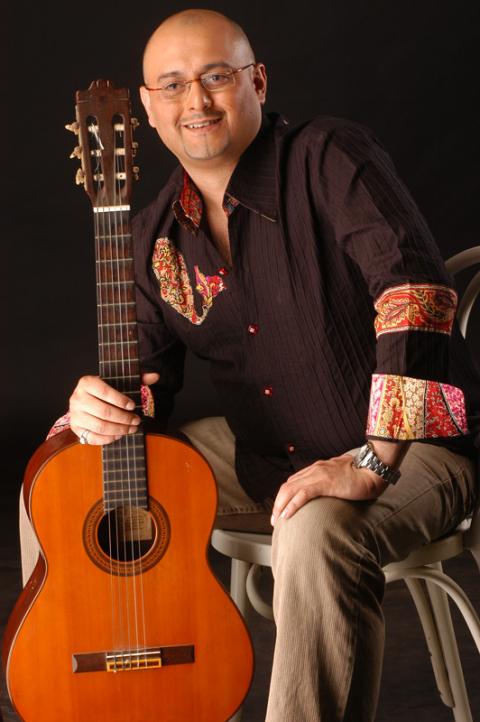Bollywood Composer Raju Singh on Film Scoring Process

Bollywood composer Raju Singh
Raju Singh, one of Bollywood's most in-demand composers, recently spoke with Berklee students about his experience with creating music for TV shows and films such as the current box-office hit Half Girlfriend. Singh is a composer, arranger, music director, producer, musician, and singer who has more than 70 composing credits to his name from Indian movies and TV shows.
Berklee’s Film Scoring Department brought Singh to campus to discuss the Bollywood film scoring business and the different experiences that have informed his diverse body of work. In addition to his most recent credit (for background music on Half Girlfriend), Singh has composed for major feature films such as Ek Villain and TV series such as C.I.D., so he had no shortage of experience to share.
Singh discussed his father's influence on his life as a musician; his father would master a musical instrument, play with some of the top musicians around India, and then move on to study and eventually master another instrument. Similarly, Singh has adopted an inquisitive and flexible approach to his career endeavors. Singh let students in on some of his creative practices and shared film clips in order to reveal the thinking behind some of his scoring work.
The following is an edited and abridged selection of the insights he shared with the students.
On his diverse career:
"I get to do jingles and ads…two years, three years…and then I'll say, 'Now I need a change. I've done enough.' I'll come back to it again, and never close the door. Let's say I want to do film scoring; I've done that for a few years. Then, sometimes there's a live event happening. Sometimes there's a Broadway show kind of thing happening, and then there's television happening. The moment you're feeling good about one and feeling a routine rut in something else, it’s time to move on. That’s how I’ve managed to work."
On musicianship:
"It's up to you to feel and achieve that thing you want for your instrument, or that thing that you do. When you're a musician, it's not only about what you're doing. The observation has to be on what's happening around you. That experience is going to be what actually gets you [to a professional level]."
On film scoring:
"What is scoring? It's like being given a sketch and all of us are given three similar crayons or colors. We are all going to color it with the same colors but we end up creating something very different."
On point of view:
"How many ways can you treat a scene? There are different things happening and different tempos from each [character's] point of view, so the music changes. Whose point of view are you trying to convey?"
